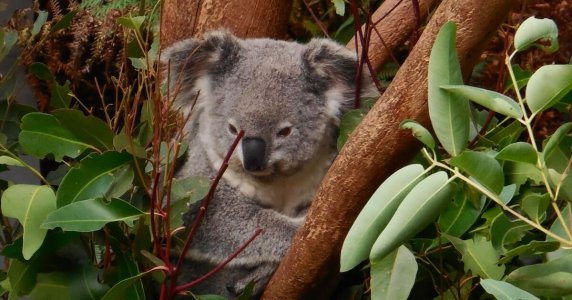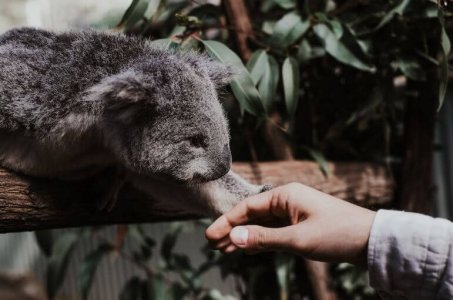US company responsible for the deaths of 152 koalas
- Replies 20
We Aussies love our native flora and fauna, and koalas are undoubtedly among the crowd favourites for locals and tourists alike.
So, it’s understandable that many were left outraged after a US-based company admitted to taking the lives of more than 100 innocent koala bears after they fell ill while living near the company’s aluminium smelter.
A US-owned industrial giant, Alcoa, has euthanised a shocking 152 koalas on land adjacent to its Portland aluminium smelter in Victoria.
The grim details of the marsupials’ fate emerged as Alcoa revealed that, under the supervision of independent experts, several health checks had been conducted since 2019. During these checks, 348 koalas were assessed, and 79 females were given fertility control to manage the population.
The company now plans to encourage the relocation of 120 koalas living in the forest near the smelter. According to Alcoa, this will hopefully bring an end to the ongoing concern about the marsupials becoming sick from fluoride emissions.
‘We remain committed to supporting the ongoing protection and management of the local koala population,’ a spokesperson told reporters.
However, a critic of the company’s management of the matter said that euthanising was ‘not good enough’ because the issue should have been addressed years ago.
The Background
A private forest was closed to the public to let experts assess the conditions of the koalas within. While the checks were necessary to address various health concerns, this move also prompted several local wildlife advocates to voice out their concerns over the animals’ conditions.
But the release of the health check data was an unexpected decision, as Alcoa previously refused to disclose the details of their previous checks to the public.
‘We do not see value in releasing detailed figures or results from individual health assessments,’ the company said in a past statement.
In the assessments they released, it was found that the koala population was ‘significantly overpopulated’. It also stated that koalas living closest to the smelter were ‘declining in health’.
The health assessments were authorised by The Conservation Regulator, a regulatory body of the state environment department (DECCA). They form part of Alcoa’s Koala Management Plan (KAP), which Zoos Victoria and several other organisations have assisted with.
The results of the checks revealed that there were high fluoride levels within the company’s operations. While safe for humans, these chemicals could (and did) harm koalas. The company also acknowledged the impact of fluorosis – a disease that leads to malnutrition, skeletal abnormalities, and dental issues – on wildlife surrounding the facility.
Over the last two years, 60 per cent of the assessed koalas were euthanised due to reported overpopulation and exposure to fluoride emissions.
These assessments were also carried out around 77 hectares surrounding the company’s facility, focusing on a 17-hectare plantation that’s closest to the smelter. This plantation was also home to the largest concentration of koalas and fell within the fluoride deposition zone.
Anthony Amis from the conservation group Friends of the Earth describes this as a 'desperate situation' for the koalas. ‘To have 152 animals euthanised at one site has got to be some sort of almost Australian record for a company,’ he said.
Mr Amis also stated that the company should have acted sooner to relocate the koalas, seeing as though they have been operating in the area since 1986. He also accused the government of leaving it up to a private company to ‘clean up the mess’.
What Happens Now?
Looking ahead, Alcoa plans to gradually remove the 17-hectare plantation supporting a koala population of 120. They have planted 16,000 eucalyptus trees on 14 hectares, forming part of a 77-hectare parcel of habitat to accommodate the relocated koalas.
While koalas are listed as endangered in the ACT, NSW, and QLD, the state government claims they are 'secure' in Victoria. However, the conservation group Koala Alliance Victoria disputes this assessment, fearing that habitat loss may lead to disease and starvation.
‘If we don’t act, koalas in Victoria will vanish without even getting onto the endangered list. That would be a terrible tragedy, and we will not rest until something is done to turn this around,’ Jessica Roberson, a spokesperson for the alliance, told reporters.
 What do you think about the way Alcoa and the government have handled koala protection in Victoria? Do you agree with the critics who suggest this should have been handled years ago? Share your opinion in the comments below.
What do you think about the way Alcoa and the government have handled koala protection in Victoria? Do you agree with the critics who suggest this should have been handled years ago? Share your opinion in the comments below.
So, it’s understandable that many were left outraged after a US-based company admitted to taking the lives of more than 100 innocent koala bears after they fell ill while living near the company’s aluminium smelter.
A US-owned industrial giant, Alcoa, has euthanised a shocking 152 koalas on land adjacent to its Portland aluminium smelter in Victoria.
The grim details of the marsupials’ fate emerged as Alcoa revealed that, under the supervision of independent experts, several health checks had been conducted since 2019. During these checks, 348 koalas were assessed, and 79 females were given fertility control to manage the population.
The company now plans to encourage the relocation of 120 koalas living in the forest near the smelter. According to Alcoa, this will hopefully bring an end to the ongoing concern about the marsupials becoming sick from fluoride emissions.
‘We remain committed to supporting the ongoing protection and management of the local koala population,’ a spokesperson told reporters.
However, a critic of the company’s management of the matter said that euthanising was ‘not good enough’ because the issue should have been addressed years ago.
The Background
A private forest was closed to the public to let experts assess the conditions of the koalas within. While the checks were necessary to address various health concerns, this move also prompted several local wildlife advocates to voice out their concerns over the animals’ conditions.
But the release of the health check data was an unexpected decision, as Alcoa previously refused to disclose the details of their previous checks to the public.
‘We do not see value in releasing detailed figures or results from individual health assessments,’ the company said in a past statement.
In the assessments they released, it was found that the koala population was ‘significantly overpopulated’. It also stated that koalas living closest to the smelter were ‘declining in health’.
The health assessments were authorised by The Conservation Regulator, a regulatory body of the state environment department (DECCA). They form part of Alcoa’s Koala Management Plan (KAP), which Zoos Victoria and several other organisations have assisted with.
The results of the checks revealed that there were high fluoride levels within the company’s operations. While safe for humans, these chemicals could (and did) harm koalas. The company also acknowledged the impact of fluorosis – a disease that leads to malnutrition, skeletal abnormalities, and dental issues – on wildlife surrounding the facility.
Over the last two years, 60 per cent of the assessed koalas were euthanised due to reported overpopulation and exposure to fluoride emissions.
These assessments were also carried out around 77 hectares surrounding the company’s facility, focusing on a 17-hectare plantation that’s closest to the smelter. This plantation was also home to the largest concentration of koalas and fell within the fluoride deposition zone.
Anthony Amis from the conservation group Friends of the Earth describes this as a 'desperate situation' for the koalas. ‘To have 152 animals euthanised at one site has got to be some sort of almost Australian record for a company,’ he said.
Mr Amis also stated that the company should have acted sooner to relocate the koalas, seeing as though they have been operating in the area since 1986. He also accused the government of leaving it up to a private company to ‘clean up the mess’.
What Happens Now?
Looking ahead, Alcoa plans to gradually remove the 17-hectare plantation supporting a koala population of 120. They have planted 16,000 eucalyptus trees on 14 hectares, forming part of a 77-hectare parcel of habitat to accommodate the relocated koalas.
While koalas are listed as endangered in the ACT, NSW, and QLD, the state government claims they are 'secure' in Victoria. However, the conservation group Koala Alliance Victoria disputes this assessment, fearing that habitat loss may lead to disease and starvation.
‘If we don’t act, koalas in Victoria will vanish without even getting onto the endangered list. That would be a terrible tragedy, and we will not rest until something is done to turn this around,’ Jessica Roberson, a spokesperson for the alliance, told reporters.
Key Takeaways
- Alcoa euthanised 152 koalas suffering from poor health on land adjacent to its Portland aluminium smelter in Victoria.
- The company plans to encourage 120 koalas still living in the forest near the smelter to relocate, addressing concerns about koalas becoming sick from fluoride emissions.
- Critics argue that Alcoa should have addressed the koala management issue years ago.
- Alcoa's assessments found that 60 per cent of animals checked over the last two years were euthanised due to overpopulation and exposure to fluoride emissions.









